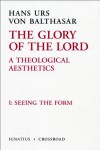Paradise Lost...and found

In the beginning, there was the Word. And the Word was with God. And the Word was God. Some time after that, there was John Milton. He took the written word, already beautiful in itself, and set it to the music of verse.
Paradise Lost is a poetic exegesis of the first three chapters of the book of Genesis. In it, Milton recounts the story of the two falls that marred the beauty of God's creation. First, the fall of Satan and his demons. Second the fall of Adam and Eve from sinless perfection. Woven into the story are a number of threads that enhance both the beauty of the story and our understanding of it: the war in heaven and subsequent expulsion of Satan and his demons, the creation of the heavens and earth, the creation of Adam and Eve, their temptation and fall, and the promise of redemption. The major elements of the story come directly from Scripture. He fleshes them out with details that are imagined, but certainly not inconsistent with the Bible. Milton's was a redeemed imagination on the order of Dante, and somehow he was able to reflect some of the glory that might have been when our first parents walked naked and unashamed through the garden. His descriptions of Heaven, Eden, and the sinless state of Adam and Eve have inspired countless authors who have imitated and borrowed from him over the centuries.
Like all great works of literature, Paradise Lost is brilliant in its scope and execution. It was executed by a poet of the highest order, who was also an accomplished theologian. Milton chose as his models the great epic poems of antiquity with the intent of creating the first epic poem in the english language. For a lesser poet to aspire to such a lofty goal might be hubris. Milton not only aspired to it, he succeeded and in so doing established himself as one of the greatest poets of all time. The aesthetic excellence of this work is beyond question. Critics have praised it since its first publication. That he accomplished this feat while blind is hardly to be believed. To conceive of a poem on the scale of Paradise Lost, to organize one's thoughts, to recite, listen, edit, and complete this masterpiece required a strength and stamina that only comes with genius that has been cultivated over a lifetime.
Milton is one of the giants of literature on whose shoulders many have since stood.
Having said all of this, I must confess that there are a few things that I don't understand about PL. First is the reaction of those who claim that Satan is somehow either the hero or the most interesting character. From the beginning, it is clear that Satan is a hero only to himself and his sycophantic demons. He lies to everyone, including himself. Even the famous line about it being better to reign in Hell than rule in Heaven is a lie, since no one really reigns in Hell. Satan is as much God's subject in Hell as he was before his fall. His self-aggrandizing speeches have no foundation in reality. There is no question of his ability to mount a successful rebellion against God, as it does not exist. He and his demons were kept at bay by angels during the war in heaven, then easily dispatched to Hell by Christ, the second person of the Trinity. There is nothing noble about Satan, his lies, his delusions, or his successful attack on man. It takes an intentional mis-reading of the text to glean any admirable quality from Satan.
The second is the reaction of many toward Eve. I have heard Milton referred to as a misogynist, and seen PL used as evidence. Again, it seems to be a deliberate mis-reading of the text. Prior to the fall, Eve is as noble as Adam in every way. They have different, complimentary attributes, and are each perfectly suited to the roles for which they were created: Adam for dominion of the world, Eve for its domestication. It is not until after the fall that Eve is presented as inferior to Adam, and that comes primarily from Adam, who is now fallen, and cannot be trusted to speak truth. Yes, there is the discourse between Adam and Raphael wherein Adam speaks of Eve in a somewhat derogatory fashion. But even here, Adam is using hyperbole, and is rebuked by the angel for going too far. This also occurs after Satan has infiltrated creation and made his presence felt.
The Norton Critical Edition is wonderful. Mr. Teskey's introduction, explanatory notes, and supplementary reading material are quite helpful in understanding Milton's poem. I highly recommend this edition to anyone interested in exploring Milton's epic.







